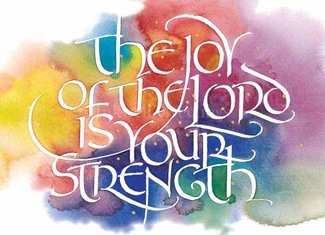 Last week I watched the 60 Minutes interview with Andre Agassi and rather than being shocked by his admissions of meth use, of not wanting to marry Brooke Shields or hating to play tennis professionally — I was heart sick saddened. Seriously, who can be “shocked†by anything a celebrity says anymore after all we have heard from the likes of Monica Lewinsky, Mackenzie Phillips, Jodie Sweetin, Brittany Spear’s Mother, Valerie Bertinelli, Marsha Brady, Anne Heche and even Barbara Walters?
Last week I watched the 60 Minutes interview with Andre Agassi and rather than being shocked by his admissions of meth use, of not wanting to marry Brooke Shields or hating to play tennis professionally — I was heart sick saddened. Seriously, who can be “shocked†by anything a celebrity says anymore after all we have heard from the likes of Monica Lewinsky, Mackenzie Phillips, Jodie Sweetin, Brittany Spear’s Mother, Valerie Bertinelli, Marsha Brady, Anne Heche and even Barbara Walters?
There has been such endless vulgar “true†confession monologue in the public arena that we are all immune to being shocked. What saddened me with Andre was that here was one more celebrity who thinks that they can find “atonement†by spilling their guts to the public. The truth is that now all their muck has been spilled on everyone else and rather than finding atonement we all now share in the filth of those confessions.
Here are Agassi’s own words:
WSJ: One of the themes of the book is that you didn’t want the limelight. You’ve settled into a life outside of tennis. Why put yourself in the spotlight again?
Mr. Agassi: I think one is always tempted to take the easy road and I certainly understood the cost that this would come with because I understood my process. I knew I couldn’t just go halfway up this road. But anything worthwhile in life comes with work and risk. This was part atonement, as well. I had something that most people don’t get, which is a second chance at my life. Everyday has been a form of atonement. And this book is that.
Jim Chairusmi, Wall Street Journal, November 14, 2009
 The word atonement means “to effect reconciliation†more specifically it references a broken union that needs to be restored or an ideal union that needs to be realized. In reading Hebrews this morning I was struck by how the Scripture clarifies that the broken union that needs reconciling is not between me and my fellow man but first me and the God who created me.
The word atonement means “to effect reconciliation†more specifically it references a broken union that needs to be restored or an ideal union that needs to be realized. In reading Hebrews this morning I was struck by how the Scripture clarifies that the broken union that needs reconciling is not between me and my fellow man but first me and the God who created me.
I was also struck with the truth that atonement is not something that we can do for ourselves. These words if trusted would end Andre’s futile conscience cleansing effort of seeing every day as another day that he has to work for atonement.
In Christ, this once for all work has already been done! His completed work is the trophy of life.
14 How much more, then, will the blood of Christ, who through the eternal Spirit offered himself unblemished to God, cleanse our consciences from acts that lead to death, so that we may serve the living God!
15 For this reason Christ is the mediator of a new covenant, that those who are called may receive the promised eternal inheritance–now that he has died as a ransom to set them free from the sins committed under the first covenant. ..
28 so Christ was sacrificed once to take away the sins of many people; and he will appear a second time, not to bear sin, but to bring salvation to those who are waiting for him.  Hebrews 9:14-15, 28 (NIV)
 I have rolled this 1st verse around in my mind today—it is hard not to think of Tiger Woods when you read it. To my sorrow I have delighted in speculating and discussing the sad events that have left him with a stained reputation.
I have rolled this 1st verse around in my mind today—it is hard not to think of Tiger Woods when you read it. To my sorrow I have delighted in speculating and discussing the sad events that have left him with a stained reputation.





